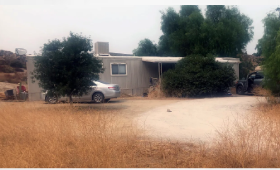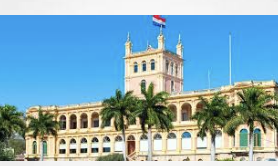2018 is here, and there is a lot of confusion in Los Angeles about the new cannabis laws. The question causing the most confusion is whether existing operators can stay open. Under Measure M, existing dispensaries with BTRCs who comply with Proposition D still have limited immunity until they are licensed. Under state law, a retailer needs a state and local license in order to conduct commercial cannabis activity. The City is currently holding a press conference on the issue and we will update our blog as this issue develops. Our LA cannabis attorneys give their opinion on the matter below.
Update: At 1pm today, the City confirmed via a press conference that EMMD cannabis retailers in Los Angeles can remain open through the licensing process.

For years under California state law, commercial marijuana activity has been limited to medical dispensaries and cultivation sites organized as non-profit collectives or cooperatives. The City of Los Angeles has allowed medical marijuana dispensaries to operate in the City under various sets of rules, most recently under Proposition D, which passed in 2013 and provided immunity from a general ban on commercial cannabis activity to a specific group of medical marijuana dispensaries that have been in operation since 2007 and met various other requirements.
Under California’s Proposition 64, which passed in 2016, starting January 1, 2018, Californians are allowed to commercially grow, distribute, and sell both medical and non-medical marijuana, but only to the extent allowed by local governments (cities, or for those in unincorporated areas, counties). The City of Los Angeles has a new system for regulating commercial cannabis activity, Measure M and portions of the Los Angeles Municipal Code implementing Measure M, which will allow for both medical and non-medical commercial cannabis. It is expected that Los Angeles will begin open up its applications on January 3, and begin issuing licenses within a few weeks after that. Under the terms of Measure M, the provisions of Proposition D were repealed beginning January 1, 2018.
Many have asked whether existing commercial cannabis businesses are allowed to continue operating under the old system of rules, until they are able to secure licenses in the new system. Existing commercial marijuana dispensaries will retain their legal protection under state and local law, so long as they submit their applications for the new system within the time window provided by the City. Los Angeles has announced that, for the first 60 days after opening its applications, only existing commercial cannabis businesses will be able to apply for licenses, in a “priority” round, and after this 60-day period, new commercial cannabis businesses will be eligible to apply for licenses. Measure M makes clear that existing medical dispensaries can continue operation after January 1, 2018, and need not shut down before applying for licenses, as long as they operate as non-profit collectives, follow all the rules set forth in Proposition D, and submit their applications for licenses within the 60-day priority period.
Measure M describes this protection as follows: “An existing medical marijuana dispensary (“EMMD”) that is operating in compliance with the limited immunity provisions (Los Angeles Municipal Code Section 45.19.6.3) and tax provisions (Los Angeles Municipal Code Section 21.50) of Proposition D, may continue to operate within the City at the one location identified in its original or amended business tax registration certificate until such time that the EMMD applies for and receives a final response to its application for a City permit or license for commercial cannabis activity being conducted at that location. The City’s designated licensing or permitting agency shall give priority in processing applications of EMMDs that can demonstrate to the City’s designated licensing or permitting agency that the EMMD has operated in compliance with the limited immunity and tax provisions of Proposition D. To avail itself of the terms of this Section, including the priority processing, an EMMD must apply for a City permit or license within sixty calendar days of the first date that applications are made available for commercial cannabis activity. If the City issues the EMMD a license or permit for commercial cannabis activity, the EMMD shall continue to operate at its location within the City in accordance with the rules and regulations set forth by the City.”
California state law also provides that the provision giving legal protection to medical marijuana patient collectives and cooperatives, Health & Safety Code section 11362.775, will sunset one year after the State begins issuing cannabis licenses. Until this law goes away, patients will still receive protection under state law for non-profit, collective cannabis activity.
Accordingly, existing medical marijuana dispensaries in Los Angeles may continue operating under California’s medical marijuana non-profit collective laws, and Los Angeles’s Proposition D, as long as they submit their applications for licenses during the 60-day priority period.
For medical marijuana cultivators, manufacturers, and distributors not located at one of the Proposition D dispensaries, there is no explicit protection under Los Angeles law for continued operation pending licensing. Los Angeles has, however, provided a priority licensing system for these existing non-retail businesses that have been around since before 2016 and supplying a Proposition D dispensary since before 2017. This suggests that the City does not intend to prosecute such businesses in current operation, but until these businesses retain licenses from Los Angeles, they face some risk of being prosecuted.

















